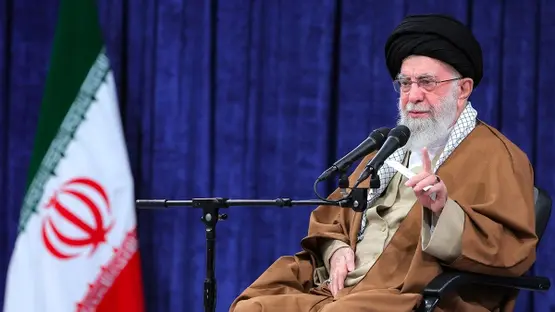Iran Signals Willingness for Nuclear Talks with U.S. Amid Ongoing Tensions and External Pressure

Iran has indicated a possible willingness to engage in talks with the U.S. over its nuclear program, but only if the discussions focus on addressing concerns about the potential militarization of its nuclear activities. This stance follows comments by Iran’s Supreme Leader, Ayatollah Ali Khamenei, who made it clear that any negotiations would not take place under what he described as U.S. “bullying” tactics.
Iran has stated that it is open to talks as long as the focus remains on specific concerns regarding its nuclear program, but it will not entertain discussions aimed at dismantling its peaceful nuclear ambitions. Khamenei has previously rejected U.S. demands related to Iran’s defense capabilities and its influence in the region, stressing that these are non-negotiable issues for the country.
This shift in Iran’s approach comes after U.S. President Donald Trump confirmed he had sent a letter to Iran’s leadership, signaling his intention to restart diplomatic efforts to address nuclear issues. The move highlights growing international concerns over Iran’s nuclear progress, with both the U.S. and Israel strongly opposing Iran’s potential acquisition of nuclear weapons. Despite these concerns, Tehran has consistently maintained that its nuclear program is intended solely for peaceful energy purposes and has reiterated its right to pursue this program.
However, while Iran is open to nuclear discussions, it continues to face external pressure. The U.S. has reintroduced its “maximum pressure” strategy, aiming to isolate Iran economically and limit its access to global markets, especially oil exports. Following the U.S. withdrawal from the 2015 nuclear deal in 2018, sanctions have severely impacted Iran’s economy, leading the country to exceed the uranium enrichment limits set by the agreement.
As Iran’s nuclear program advances, the international community remains watchful. Experts warn that the opportunity for successful diplomatic negotiations is closing rapidly as the pace of Iran’s nuclear progress intensifies. The growing pressure to resolve is palpable. Nevertheless, Iran’s leadership remains firm in asserting that its nuclear activities are peaceful and that it will not yield to external demands.
The evolving diplomatic situation presents both challenges and opportunities for both parties. While there is still a possibility for dialogue, deep-rooted tensions over defense policy, regional influence, and the legitimacy of Iran’s nuclear ambitions continue to make progress difficult. As both sides assert their interests on the global stage, the coming months will be crucial in determining whether diplomatic engagement can resume or whether the standoff will escalate further.
